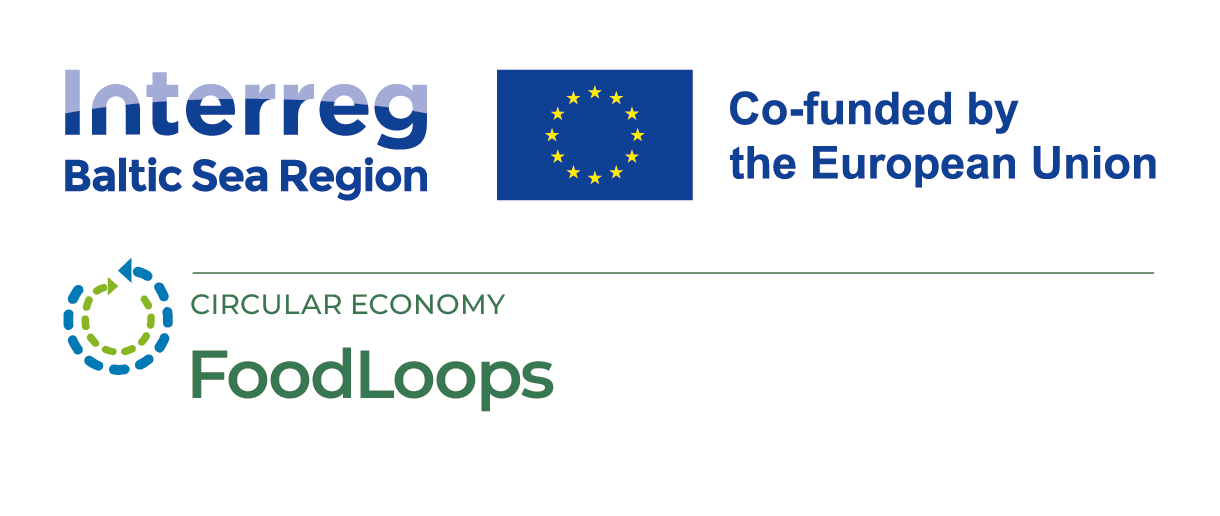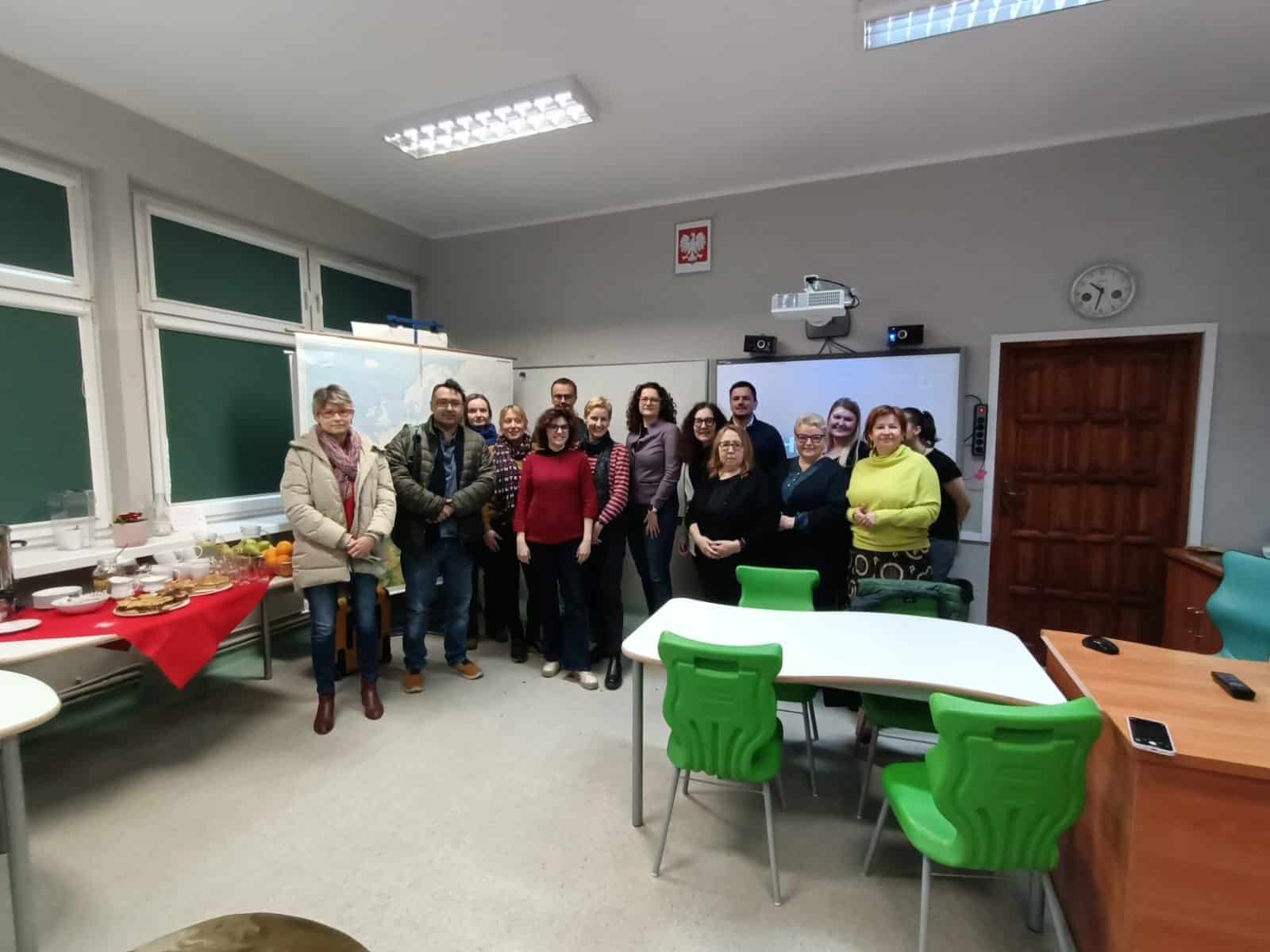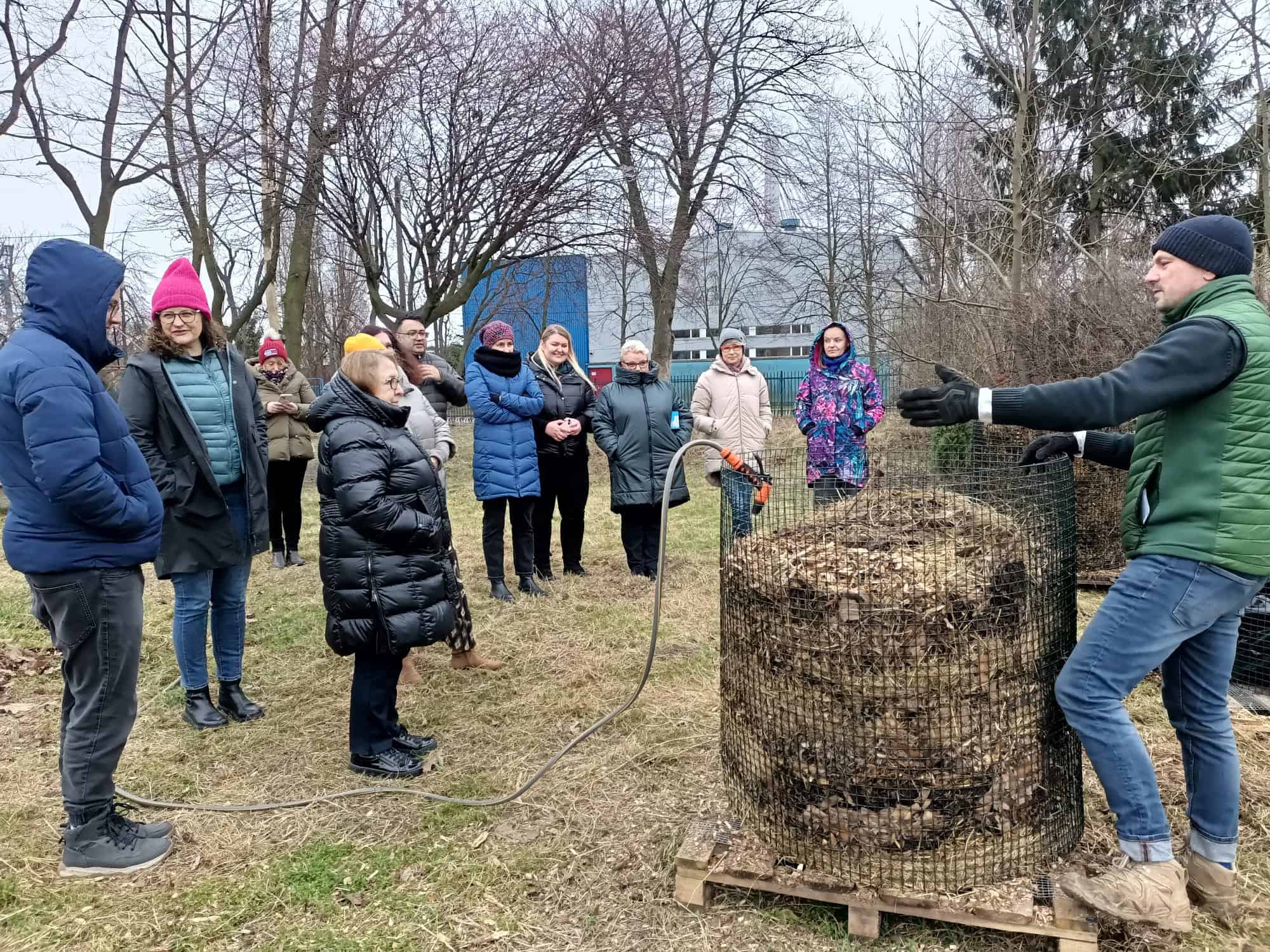
FoodLoops Project Visit to Gdańsk: Advancing School-Based Food Waste Solutions Across the BSR
15 April 2025
Schools are among the key places where significant amounts of food are wasted each year. In some school canteens, over 15% of prepared food goes uneaten — highlighting the urgent need for sustainable food systems in educational settings.
In March, partners of the FoodLoops project met in Gdańsk, Poland for a knowledge exchange visit. The visit brought together representatives from Germany, Finland, Lithuania, and Poland, fostering collaboration across the Baltic Sea Region (BSR) on bio-waste reduction and organic farming.
The programme included hands-on discussions, partner presentations, and a visit to the local municipal composting facility, showcasing practical approaches to managing school-generated food waste.
As part of the visit, the FoodLoops Manual – “Cooperation for Circular Bio-Waste in Schools and Beyond” – was presented. The manual offers practical guidance for schools and municipalities on how to co-create circular food systems that are tailored to local needs and contexts.
📘 Access the manual here:
https://interreg-baltic.eu/wp-content/uploads/2025/04/FOODLOOP_v9.pdf
The goal of this manual is to guide stakeholders in the local food waste value chain through collaborative, circular bio-waste management by mapping their motivations and challenges and co-developing practical, sustainability-driven solutions.
The manual emphasises the importance of engaging different stakeholder groups such as schools, local farmers, caterers, municipalities, and regulatory bodies to create innovative solutions that transform unavoidable food waste into valuable products like organic compost. It also discusses the benefits of integrating hands-on activities like gardening and composting to enhance educational experiences and promote healthier eating habits. Overall, the document is intended to serve as a flexible resource that can be adapted local contexts, providing inspiration for sustainable practices in the food system.
Looking ahead, FoodLoops partners are now moving into the next phase of the project — working together to co-develop new ideas and approaches to support food waste prevention in schools across the region.







